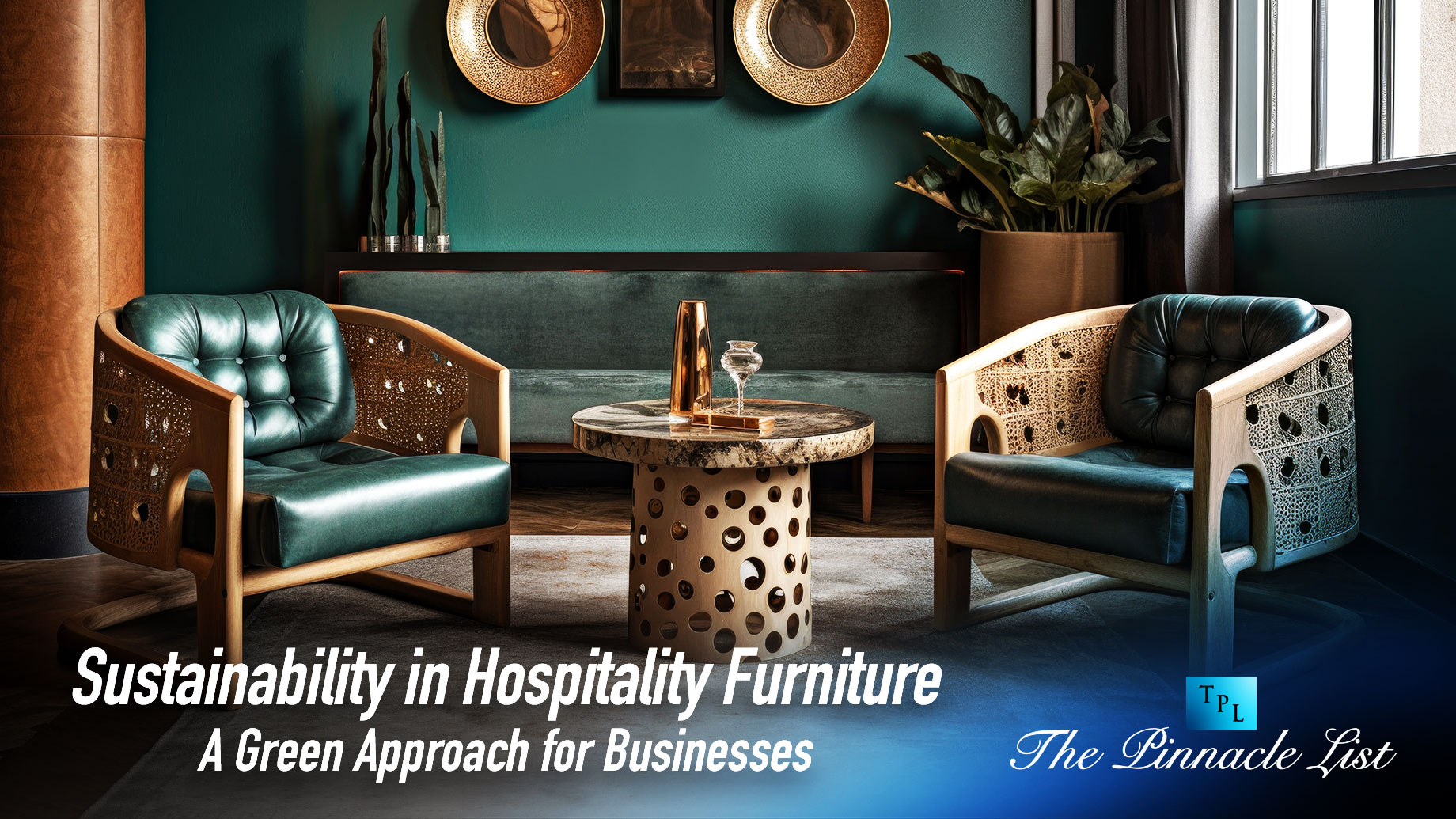
In an era where sustainability has become a global imperative, industries seek ways to reduce their environmental footprint. The hospitality sector, in particular, is taking significant strides towards sustainability, and one crucial aspect is the furniture used in hotels and restaurants.
The Rise of Sustainable Hospitality Furniture
The hospitality industry has long been associated with high resource consumption due to the need for comfortable and visually appealing furnishings. However, as awareness of environmental issues grows, businesses reevaluate their practices and embrace sustainability. Sustainable hospitality furniture is at the forefront of this transformation, driven by several key factors:
- Ecological Consciousness: Reducing Waste: Using recycled or upcycled materials, sustainable furniture minimize waste through efficient manufacturing processes.
- Lowering Carbon Footprint: Eco-friendly furniture often involves sourcing materials locally to reduce transportation emissions.
- Energy Efficiency: Some sustainable furniture designs incorporate energy-efficient features or require less energy during manufacturing.
Customer Demand
- Growing Awareness: Modern consumers are increasingly eco-conscious, seeking businesses that share their values. Hotels and restaurants that prioritize sustainability can attract and retain environmentally-aware clientele.
- Positive Reputation: Sustainability efforts can enhance a business’s reputation, increasing customer loyalty and positive word-of-mouth.
Legal and Regulatory Pressure
Government Regulations: Many regions have introduced regulations to reduce waste, conserve resources, and lower greenhouse gas emissions. Compliance with these laws is crucial for hospitality businesses.
Designform Furnishings: Pioneering Sustainable Solutions
Designformfurnishings.com has emerged as a leader in providing sustainable hospitality furniture. Their commitment to eco-friendly practices is evident in several aspects of their product offerings:
Material Selection
- Recycled and Reclaimed Materials: Designform Furnishings incorporates recycled and reclaimed materials into their furniture, reducing the need for virgin resources.
- FSC-Certified Wood: Using wood from Forest Stewardship Council (FSC) certified sources ensures responsible forest management.
- Low-VOC Finishes: Volatile organic compounds (VOCs) can harm indoor air quality and the environment. Furniture finishes with low VOC emissions are a standard in their product range.
Sustainable Manufacturing
- Local Production: By manufacturing their furniture locally, Designform Furnishings minimizes the environmental impact associated with long-distance transportation.
- Lean Production: Their efficient production processes reduce waste and energy consumption, contributing to a smaller carbon footprint.
Customization and Longevity
- Bespoke Solutions: Customization options allow businesses to order furniture that perfectly fits their space and style preferences, reducing the likelihood of replacements due to design changes.
- Durability: Sustainable furniture is designed to be durable, ensuring a longer lifespan and less frequent need for replacement.
The Benefits of Sustainable Hospitality Furniture
Investing in sustainable hospitality furniture, offers various advantages for businesses in the industry:
Cost Savings
- Lower Maintenance: Durable materials and high-quality construction reduce maintenance and replacement costs.
- Energy Efficiency: Some sustainable designs incorporate energy-efficient features, potentially decreasing utility bills.
Enhanced Reputation
- Attracting Eco-Conscious Guests: Sustainability initiatives can attract guests who prefer eco-friendly accommodations and dining establishments.
- Positive Reviews: Satisfied environmentally aware customers are likelier to leave positive reviews and recommendations.
Compliance and Future-Proofing
- Regulatory Compliance: Sustainable practices help businesses adhere to environmental regulations, avoiding potential fines or penalties.
- Future-Proofing: As sustainability becomes more critical, companies embracing eco-friendly practices are better positioned for long-term success.
Conclusion
Sustainability in hospitality furniture is not just a trend; it’s a necessity in today’s world. Companies lead by offering furniture solutions that balance style, comfort, and environmental responsibility. For hotels and restaurants, investing in sustainable furniture isn’t just an ethical choice; it’s a wise business decision that can result in cost savings, a positive reputation, and a stronger position in a changing market. As the hospitality industry evolves, sustainability will remain critical in attracting and retaining guests.